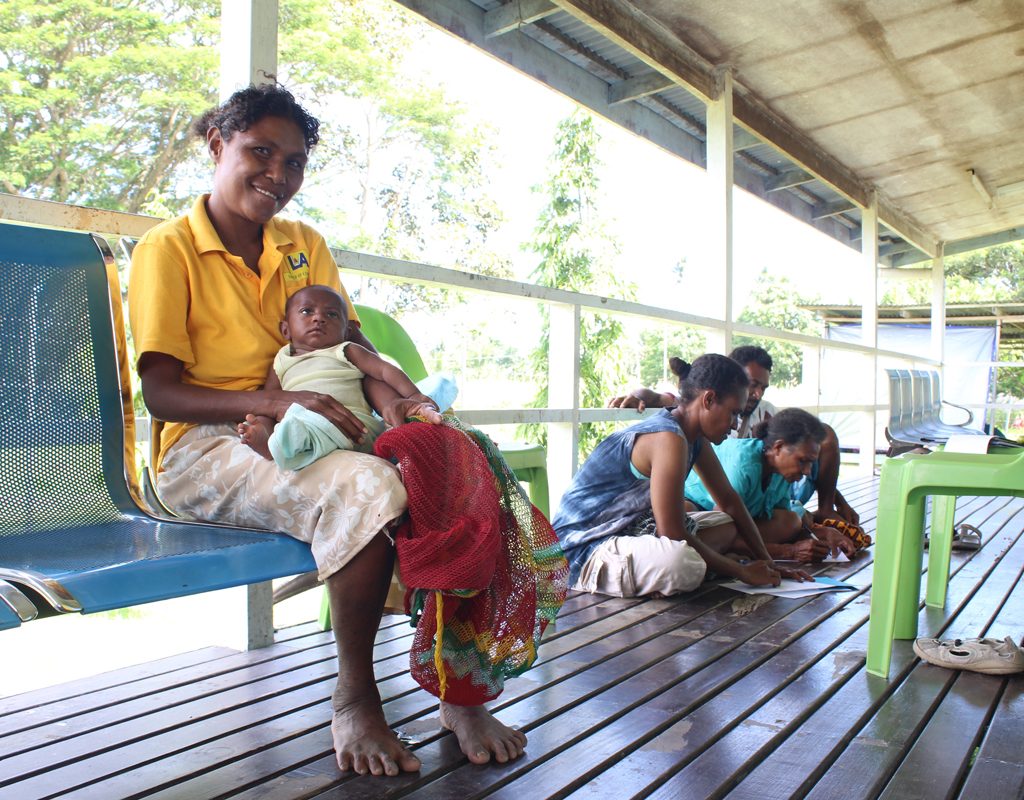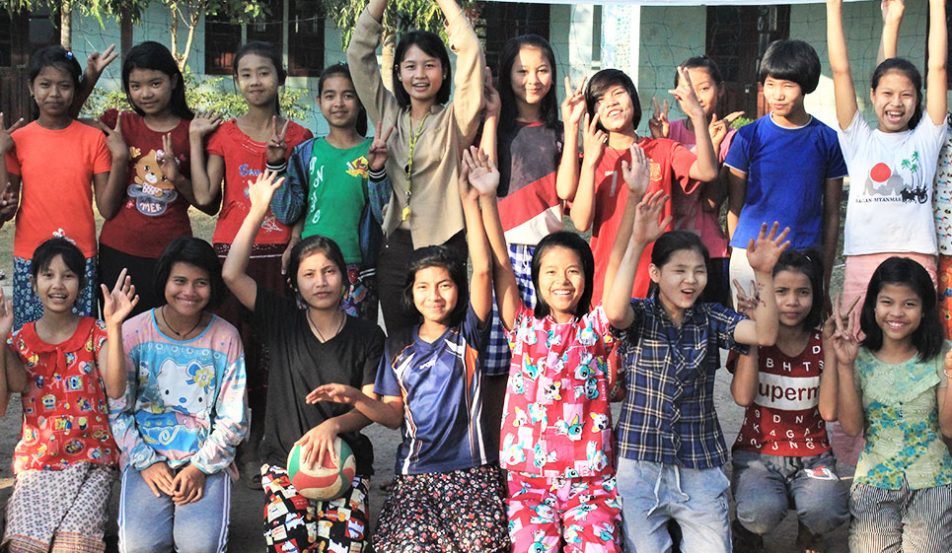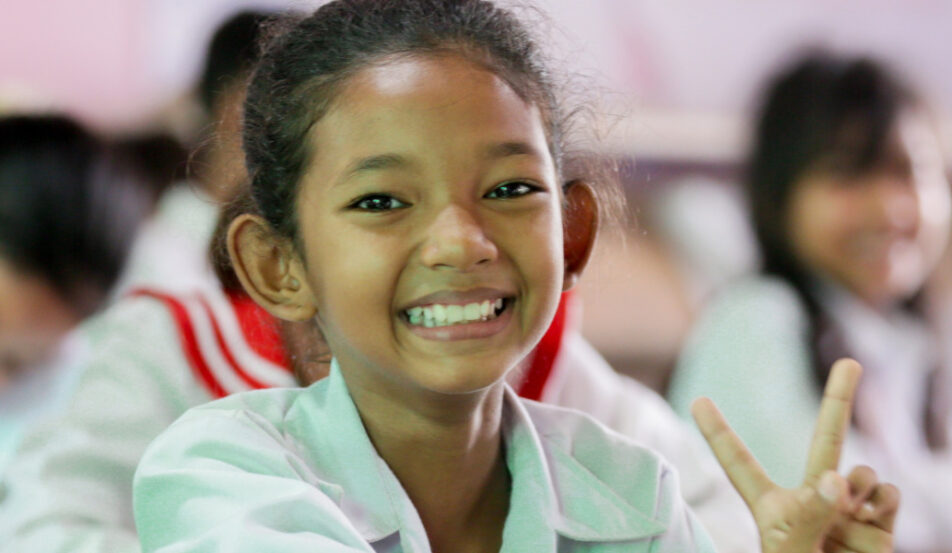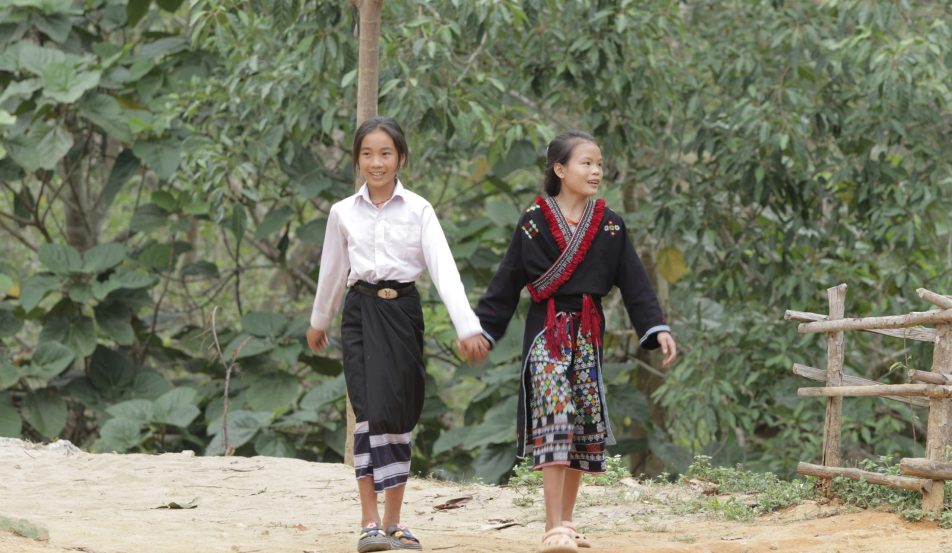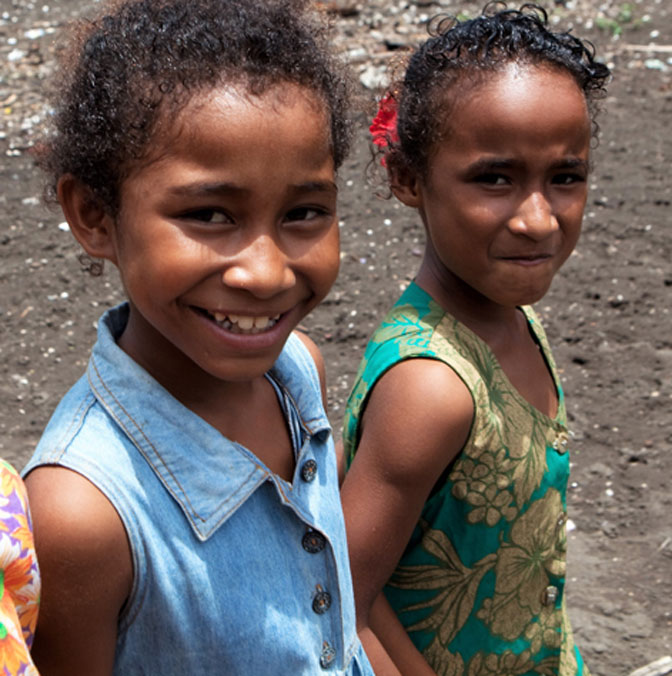Delivery kits saving mothers and babies in PNG
When ChildFund PNG staff found Theresa, she was lying on the side of the road with her newly delivered baby in her arms.
Family members had assisted Theresa as she gave birth in the middle of the night without medical instruments, lighting or health professionals – conditions which are far too common in Papua New Guinea.
In labour and walking
Like so many mothers in remote villages in Papua New Guinea, Theresa’s journey to the closest health clinic proved too long.
She started walking at about 5pm after preparing dinner for her six children and leaving them with her mother.
Earlier in the day Theresa had experienced cramps and remembered the nurse at Waima Health Clinic had advised her to deliver at the health centre.
This was her seventh pregnancy and the nurse had advised Theresa that she was a high-risk mother and might have some complications if she delivered her baby at home.
Despite her preparations, Theresa knew she would not make it to the clinic that night. She stopped at her sister’s house, hoping to stay for the night before continuing the walk the following morning.
“Although the cramps had become stronger, I thought I could make it through the night,” Theresa says.
“I was going into my eighth month, so I didn’t think I would give birth yet. But after a while I couldn’t take the pain any longer and I told my husband and sister to take me to Waima.”
How ChildFund’s delivery kits helped keep Theresa safe
Her brother-in-law rushed ahead to the clinic, where ChildFund staff and nurses from a nearby regional health centre were asleep following a day doing community outreach programs in remote villages.
The clinic was stocked with delivery kits donated by ChildFund donors. Nurses Fabianna and Mary grabbed these before leaving the centre in search of Theresa.
“When we arrived it was dark, so the driver reversed the vehicle into the bush and we used the light from the truck,” says Fabianna.
“Theresa had already given birth so we assisted her to deliver the placenta and cleaned her and her baby.”
These delivery kits contain a plastic groundsheet to give birth on, soap to wash hands, gauze to wipe a newborn babies’ eyes, and a sterilised blade to cut the umbilical cord.
These reduce the risks of infection and possible death for both mother and child.
Seven births, none at a health clinic
ChildFund Papua New Guinea encourages all mothers to go to health clinics where they can give birth with the assistance of skilled birth attendants but many mothers here do not have the opportunity.
None of Theresa’s babies have been born at a health clinic.
Her first-born son, now 12 years old, was born on the road while Theresa was walking to a health centre. She gave birth to her five other children at home in a small hut built away from the family home, which is the tradition in her part of Papua New Guinea.
Theresa’s mother assisted her with the deliveries, using a razor blade they had bought at the roadside market to cut the umbilical cords.
How ChildFund is helping reduce deaths in childbirth
ChildFund and its partners are working to improve health centres in remote villages. Our health programs in Papua New Guinea is supported by the Australian Government through the Australian NGO Cooperation Program (ANCP).
In 2018, ChildFund installed a solar fridge and solar panels at the Waima Health Clinic so vaccinations could be stored. Theresa and her baby were immunised using vaccines stored here.
Improving health clinics is crucial to improving Papua New Guinea’s shocking rates of deaths in childbirth, but it is not the only solution.
Many mothers like Theresa are unable to make it to a health clinic because they live too far away, and in remote villages cars are extremely rare.
Mary says mothers who give birth at home are more likely to die from preventable causes, such as haemorrhaging.
“A lot of mothers who give birth at home suffer from haemorrhage so we had to reach Theresa quickly to save her and her baby,” Mary says.
“We wouldn’t have done it without the ‘delivery kit’ and support we continue to get from partners like ChildFund.”
Fabianna said the delivery kits save lives when mothers cannot make it to the clinic.
“Everything needed for the mother and baby are packed in the delivery kit so it’s easy to just pick up the kit and run during emergencies,” she says.
